#andrew astor
Explore tagged Tumblr posts
Text
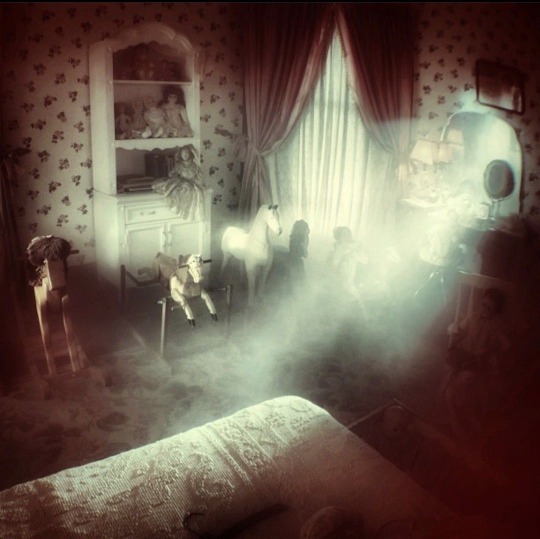
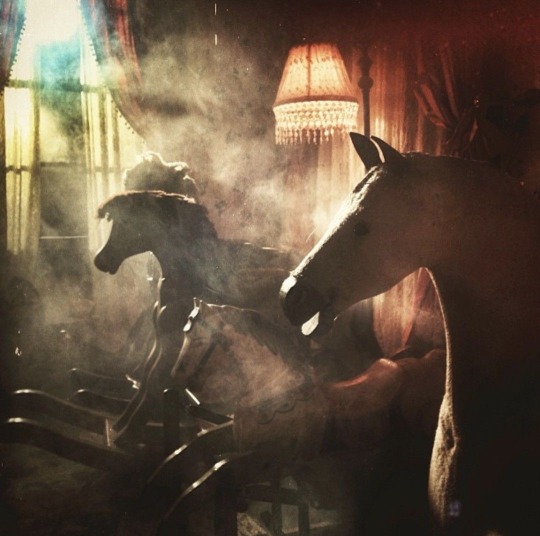


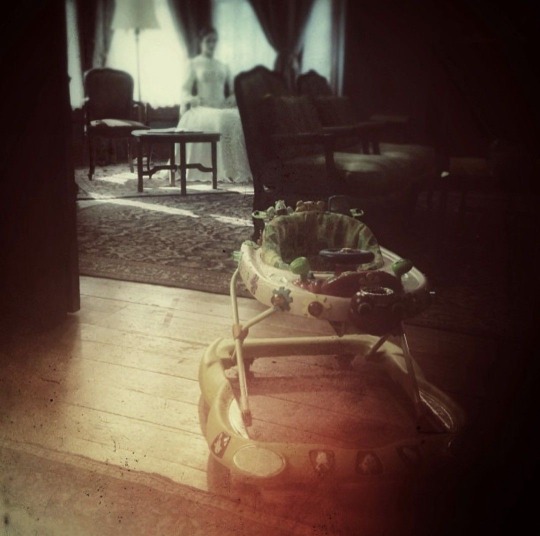
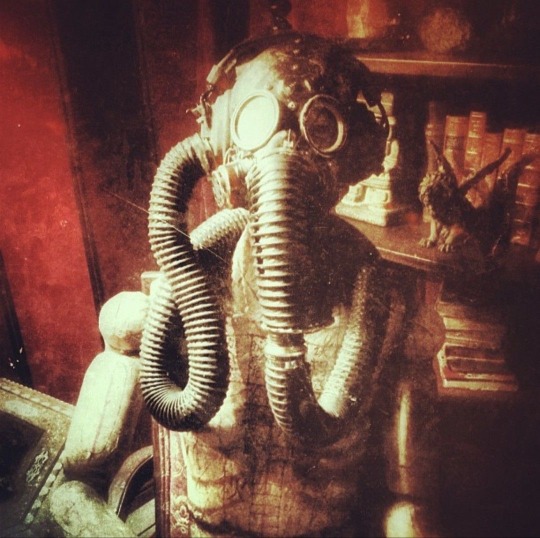

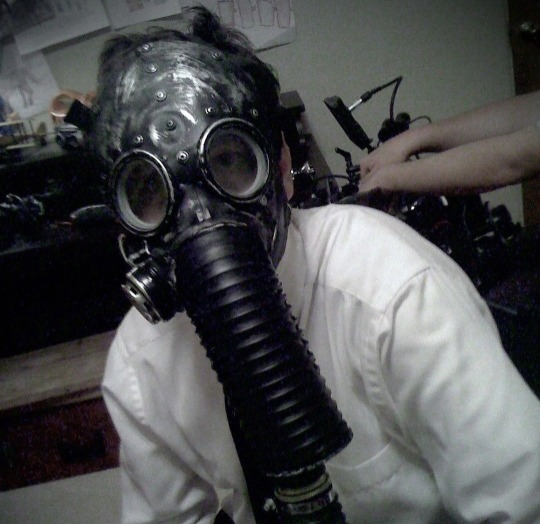

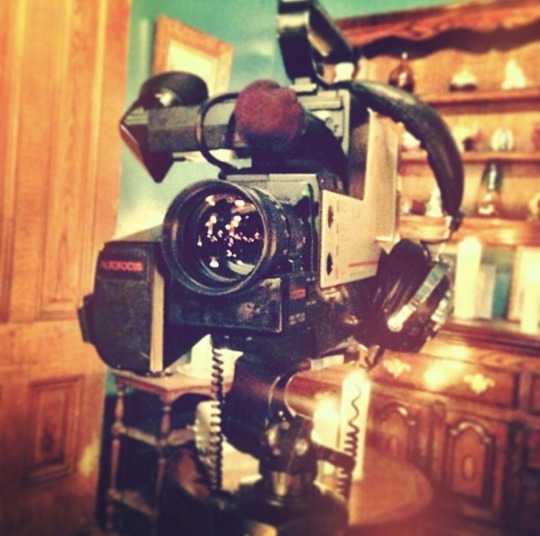
behind the scenes of “insidious” (2010)
#insidious#james wan#horror#behind the scenes#horror movies#insidious franchise#patrick wilson#rose byrne#lin shaye#ty simpkins#barbara hershey#leigh whannell#angus sampson#andrew astor#joseph bishara#2010s horror#paranormal horror#paranormal#possession horror#possession#haunted house#demon horror#demons#psychic
103 notes
·
View notes
Text
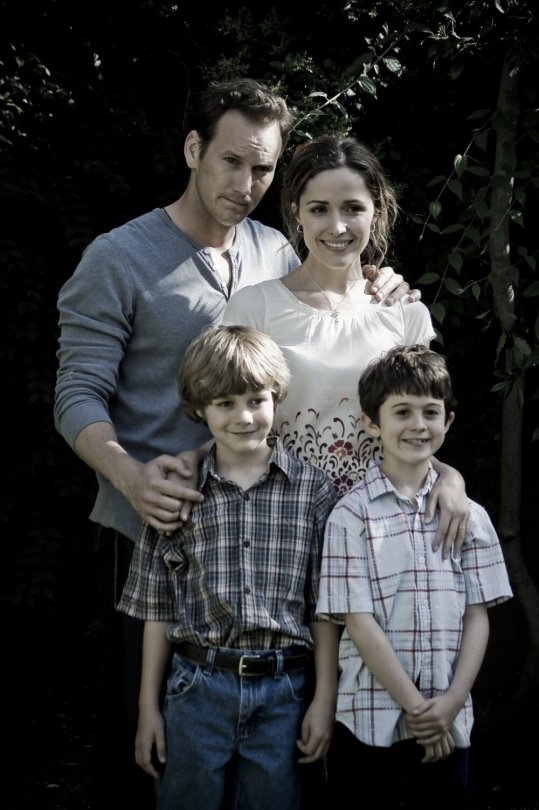
6 notes
·
View notes
Text
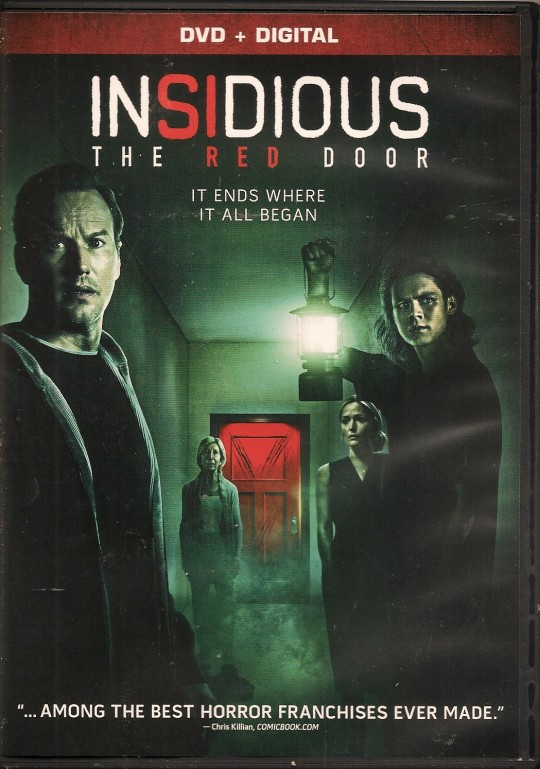
Bad movie I have Insidious: The Red Door 2023
#Insidious: The Red Door#Ty Simpkins#Patrick Wilson#Rose Byrne#Sinclair Daniel#Hiam Abbass#Andrew Astor#Juliana Davies#Steve Coulter#Peter Dager#Justin Sturgis#Joseph Bishara#David Call#Stephen Gray#Robin S. Walker#Leigh Whannell#Angus Sampson#Lin Shaye#Bridget Kim#Logan Wilson#Kasjan Wilson#Mary Looram#Adrian Acosta#AJ Dyer#Kalin Wilson#E. Roger Mitchell#Dagmara Dominczyk#Elaine Apruzzese#Victorya Danylko-Petrovskaya#Joshua Haire
17 notes
·
View notes
Text
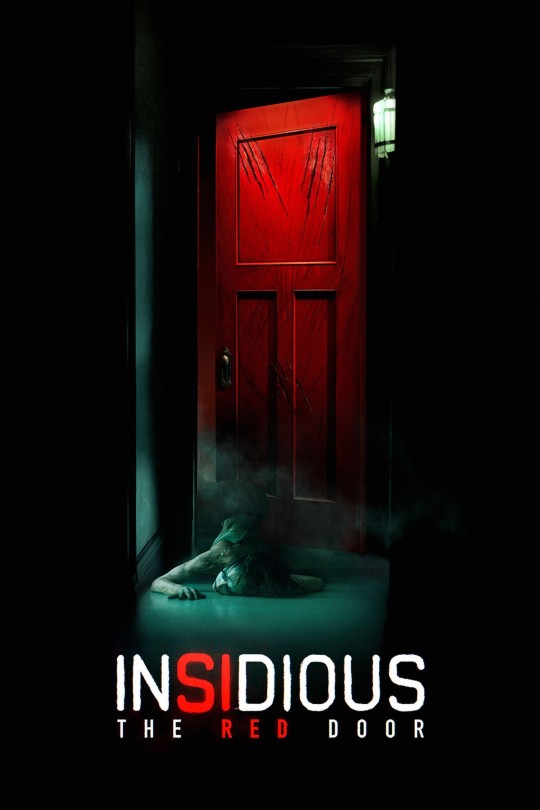

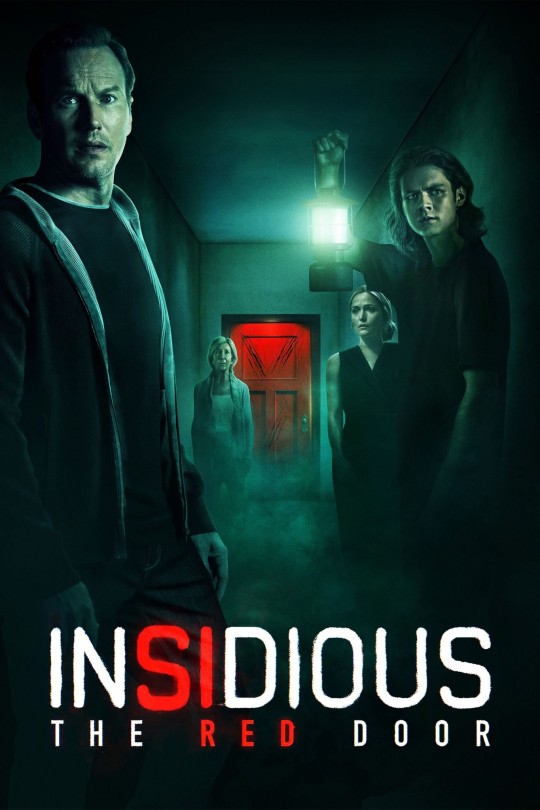
W A T C H I N G
#INSIDIOUS: THE RED DOOR (2023)#PATRICK WILSON#Ty Simpkins#Rose Byrne#Hiam Abbass#Andrew Astor#Juliana Davies#Joseph Bishara#David Call#Leigh Whannell#Angus Sampson#Lin Shaye#Supernatural Horror#James Wan#BLUMHOUSE#watching
4 notes
·
View notes
Text
Insidious: The Red Door (2023) Review
As Insidious: The Red Door closes, let's hope another one doesn't open.
As Insidious: The Red Door closes, let’s hope another one doesn’t open. INSIDIOUS: THE RED DOOR brings Patrick Wilson’s other horror franchise back to its main narrative thread after the previous two films in the series offered unnecessary and underwhelming forays into prequelisation, coming back to the Lambert family nearly a decade on from the events of INSIDIOUS: CHAPTER 2. It also marks…
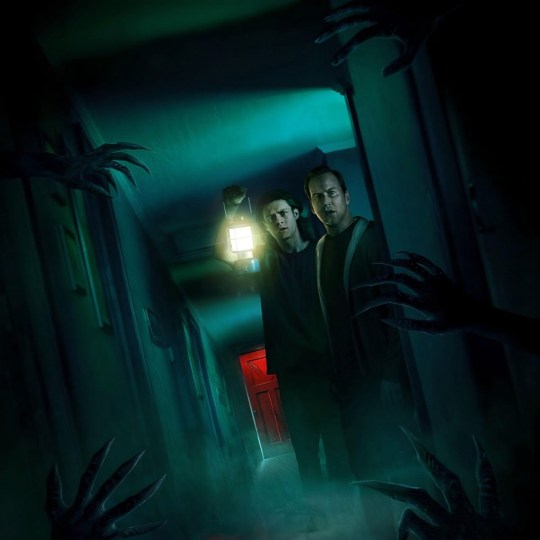
View On WordPress
#2023#andrew astor#horror#insidious#joseph bishara#leigh whannell#month of spooks#patrick wilson#rose byrne#sinclair daniel#ty simpkins
2 notes
·
View notes
Text
Sobrenatural: A Porta Vermelha
Sobrenatural: A Porta Vermelha (Insidious: The Red Door) SINOPSE: Josh Lambert segue para o leste para deixar seu filho, Dalton, na faculdade. Mas demônios reprimidos do passado voltam repentinamente para assombrar os dois. Informações técnicas: DIREÇÃO: Patrick Wilson ROTEIRO: Leigh Whannell, Scott Teems ELENCO: Patrick Wilson, Ty Simpkins, Rose Byrne, Sinclair Daniel, Hiam Abbass, Andrew Astor,…

View On WordPress
#2023#Andrew Astor#Canadá#EUA#Franquia Insidious#Franquia Sobrenatural#HBO Max#Hiam Abbass#Insidious: The Red Door#Leigh Whannell#Letra S#Lin Shaye#Locação digital#Patrick Wilson#Peter Dager#Plataforma HBO Max#Rose Byrne#Scott Teems#Sinclair Daniel#Sobrenatural: A Porta Vermelha#Streaming#Ty Simpkins
0 notes
Text
youtube
SOBRE PAIS E FILHOS: SOBRENATURAL A PORTA VERMELHA (INSIDIOUS RED DOOR, 2023)
#insidious#insidious red door#patrick wilson#horror movies#Ty Simpkins#Rose Byrne#Lin Shaye#Andrew Astor#demons#Joseph Bishara#Sinclair Daniel#Youtube
1 note
·
View note
Text
Extended preview released for Insidious: The Red Door
In Insidious: The Red Door, the original cast from the horror franchise is back for the final chapter of the Lambert family’s terrifying saga, with Patrick Wilson (also making his directorial debut), Ty Simpkins, Rose Byrne and Andrew Astor. To put their demons to rest once and for all, Josh and a college-aged Dalton must go deeper into The Further than ever before, facing their family’s dark…
youtube
View On WordPress
1 note
·
View note
Text
'Insidious: The Red Door*' Review (*Should We Say 'Red Door' the Way That Danny Torrance Says 'Red Rum'?)
'Insidious: The Red Door*' Review (*Should We Say 'Red Door' the Way That Danny Torrance Says 'Red Rum'?)
What to Expect When You’re Insidious (CREDIT: Screen Gems) Starring: Ty Simpkins, Patrick Wilson, Sinclair Daniel, Rose Byrne, Andrew Astor, Hiam Abbass, Lin Shaye Director: Patrick Wilson Running Time: 107 Minutes Rating: PG-13 Release Date: July 7, 2023 (Theaters) As someone whose favorite color is red, I resent what the latest Insidious has to say about bloody-looking entryways. It literally…
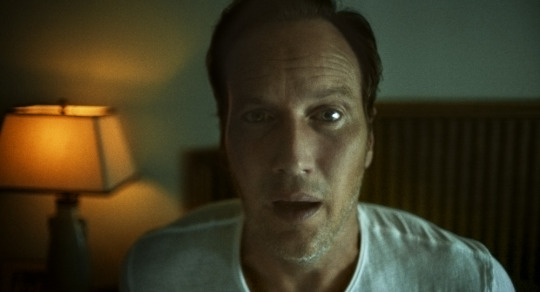
View On WordPress
#Andrew Astor#Hiam Abbass#Insidious#Insidious: The Red Door#Lin Shaye#Patrick Wilson#Rose Byrne#Sinclair Daniel#Ty Simpkins
1 note
·
View note
Text
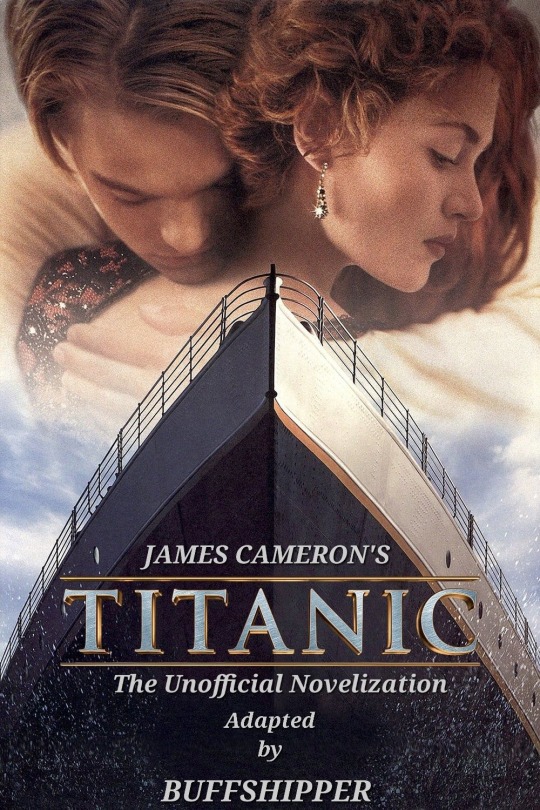
https://archiveofourown.org/works/65040700/chapters/167240293
Intro
I'm a 90s kid. I remember when the movie came out in '97, what a cultural phenomenon it became. I remember hearing Celine Dion croon "My Heart Will Go On" over the radio everyday. I remember watching it on VHS, HBO, or on TV with my folks when I was older. I remember Kate Winslet was the first naked woman I ever saw, and when I hit puberty, she was my first crush. Since then, I've watched this film every year since I rediscovered it after a bad breakup with my first girlfriend. To this day, 15 years later and married with kids, I have a "Titanic Week" in April, where I'll watch the film and historical documentaries. I even have a Titanic themed tattoo. I love this movie. Now, there's been a few "making-of" books based on this movie but—unbelievably—never a full-on novelization. Using the script and the film, deleted scenes and all, for better or worse, this is my attempt. I hope you enjoy.
Rating Mature
Summary
An "unofficial" novelization of James Cameron's Titanic (1997). In 1996, treasure hunter Brock Lovett searches for the rare diamond "The Heart of the Ocean" inside of the wreck of RMS Titanic, the ill-fated ocean liner that sunk during her maiden voyage in 1912. Instead of finding the Heart of the Ocean in a safe salvaged from the wreck, however, Brock uncovers a drawing of a young nude woman wearing that diamond. A 101-year old woman named Rose Calvert claims to be that woman, and to Brock and his crew recalls her past as socialite Rose DeWitt Bukater and her star-crossed love affair with a poor artist named Jack Dawson on the Unsinkable Titanic...
Chapter 1 The Wreck Treasure hunter and explorer Brock Lovett searches for a rare diamond called "The Heart of the Ocean" inside RMS Titanic, the ill-fated ocean liner that sunk on her maiden voyage in 1912...
Likes ❤️ and Reblogs 🔁 are much appreciated!
#james cameron titanic#titanic 1997#titanic#rms titanic#james cameron#rose dewitt bukater#rose calvert#jack dawson#thomas andrews#captain smith#charles lightoller#william murdoch#caledon hockley#molly brown#j bruce ismay#jack x rose#fabrizio de rossi#brock lovett#lewis bodine#lizzy calvert#titanic fanfiction#john jacob astor#benjamin guggenheim#leonardo dicaprio#kate winslet#jack dawson x rose dewitt bukater#historical fiction#novelization#white star line#tommy ryan
12 notes
·
View notes
Text









#rms titanic#titanic#postcard#auction#richard william smith#mrs olive dakin#luxury liner#southampton#new york#cherbourg#queenstown#cobh#ireland#france#Henry Aldridge & Son#andrew aldridge#john jacob astor IV#astor family#gold watch#titanic memorabilia#memorabilia
5 notes
·
View notes
Text
HOLY SHIT I JUST NOTICED SOMETHING.
The reason we only see Maya three times in act two is because, us as an audience, are playing the role of the observant court members that’re constantly watching and judging the royals. Maya isn’t in the castle, we would have no reason to see her, we only do when the townspeople are gossiping about the new girl, with her letters to Maddox (Rowan makes note that the servants gossip about the letters), and during the final number when Maddox goes to find her.
During Your Day in Court the characters are introducing us to the court, and effectively making us members of the court observing the proceedings. When Maya leaves the castle, she leaves the scope of the story, and leaves the watchful eye of gossip and judgment. We don’t get to see most of what she gets up to because the people in court don’t get to see them, and we only get to see what people would be talking about actively.
#the art of pleasing princes#maya astor#taopp#they also needed Miel for the stage slap and to throw the crown when King Astor dies lol#fucking love the mechanics of a good stage slap#usually (in my experience and how I was taught) the slap sound comes from the person being hit#they clap their hands and fake the impact and the audience is so focused on the hit they don’t notice the clap#something like Falsettos actually has a different actor do the sound#Andrew Rannells is the one doing the impact sound when Christian Borle takes the swing in Marvin Hits Trina#you can see him doing it in the recording of the 2016 Broadway show#also having Miel play King Astor in shadow adds the implication that Maya looks like him which adds an extra layer of fucked up lol
11 notes
·
View notes
Text
"LITTLE WOMEN" (1949) Review
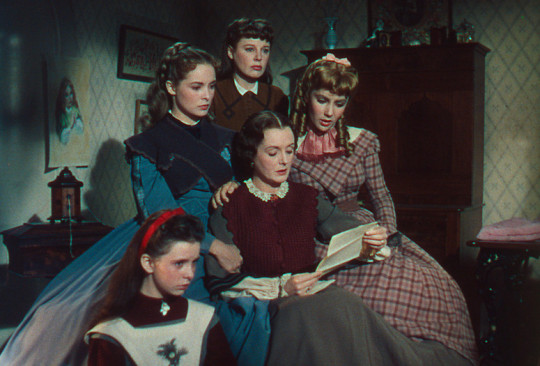
"LITTLE WOMEN" (1949) Review
Louisa May Alcott's 1868 novel is a bit of a conundrum for me. I have never been a fan of the novel. I have read it once, but it failed to maintain my interest. Worse, I have never had the urge to read it again. The problem is that it is that sentimental family dramas - at least in print - has never been appealing to me. And this is why I find it perplexing that I have never had any problems watching any of the film or television adaptations of her novel.
One of those adaptations proved to be Metro-Goldwyn-Mayer's 1949 adaptation, which was produced and directed by Mervyn LeRoy. It is hard to believe that the same man who had directed such hard-biting films like "LITTLE CAESAR", "I AM A FUGITIVE FROM A CHAIN GANG" and "THEY WON'T FORGET", was the artistic force behind this sentimental comedy-drama. Or perhaps MGM studio boss, Louis B. Meyer, was the real force. The studio boss preferred sentimental dramas, comedies and musicals. Due to this preference, he was always in constant conflict with the new production chief, Dore Schary, who preferred more realistic and hard-biting movies. Then you had David O. Selznick, who wanted to remake his 1933 adaptation of Alcott's novel. One can assume (or not) that in the end, Meyer had his way.
"LITTLE WOMEN", as many know, told the experiences of the four March sisters of Concord, Massachusetts during and after the U.S. Civil War. The second daughter, Josephine (Jo) March, is the main character and the story focuses on her relationships with her three other sisters, the elders in her family - namely her mother Mrs. March ("Marmee") and Aunt March, and the family's next-door neighbor, Mr. Laurence. For Jo, the story becomes a "coming-of-age" story, due to her relationships with Mr. Laurence's good-looking grandson, Theodore ("Laurie") and a German immigrant she meets in New York City after the war, the equally good-looking and much older Professor Bhaer. Jo and her sisters deal with the anxiety of their father fighting in the Civil War, genteel poverty, scarlet fever, and the scary prospect of oldest sister Meg falling in love with Laurie's tutor.
Despite my disinterest in Alcott's novel, I have always liked the screen adaptations I have seen so far - including this film. Due to the casting of Margaret O'Brien as the mild-mannered Beth, her character became the youngest sister, instead of Amy. Screenwriters Sally Benson, Victor Heerman, Sarah Y. Mason and Andrew Solt made other changes and they left out some of Alcott's memorable plot points from the novel's narrative. But these changes, however regretful a few of them were (namely Jo and Amy's conflict over the former's manuscript) did not have any real impact on Alcott's original story. Ironically, both Victor Heerman and Sarah Y. Mason wrote the screenplay for Selznick's 1933 film. This should not be surprising, considering that this adaptation bears a strong similarity to the earlier version. I thought Mervyn LeRoy's direction injected a good deal of energy into a tale that could have easily bored me senseless. In fact, MGM probably should have thank its lucky stars that LeRoy had served as producer and director.
As much as I admired LeRoy's direction of this film, I must admit there was a point in the story - especially in the third act - in which the pacing threatened to drag a bit. My only other problem with "LITTLE WOMEN" is that I never really got the impression that this film was set during the 1860s, despite its emphasis on costumes and the fact that the March patriarch was fighting the Civil War. Some might say that since "LITTLE WOMEN" was set in the North - New England, as a matter of fact - it is only natural that the movie struggled with its 1860s setting. But I have seen other Civil War era films set in the North - including the 1994 version of "LITTLE WOMEN" - that managed to project a strong emphasis of that period. And the production values for this adaptation of Alcott's novel seemed more like a generic 19th century period drama, instead of a movie set during a particular decade. It is ironic that I would make such a complaint, considering that the set decoration team led by Cedric Gibbons won Academy Awards for Best Art Direction.
I certainly had no problems with the cast selected for this movie. Jo March seemed a far cry from the roles for which June Allyson was known - you know, the usual "sweet, girl-next-door" type. I will admit that at the age of 31 or 32, Allyson was probably too young for the role of Jo March. But she did such a phenomenon job in recapturing Jo's extroverted nature and insecurities that I found the issue of her age irrelevant. Peter Lawford, who was her co-star in the 1947 musical, "GOOD NEWS", gave a very charming, yet complex performance as Jo's next door neighbor and friend, Theodore "Laurie" Laurence. Beneath the sweet charm, Lawford did an excellent job in revealing Laurie's initial loneliness and infatuation of Jo. Margaret O'Brien gave one of her best on-screen performance as the March family's sickly sibling, Beth. Although the literary Beth was the third of four sisters, she is portrayed as the youngest, due to O'Brien's casting. And I feel that Le Roy and MGM made a wise choice, for O'Brien not only gave one of her best performances, I believe that she gave the best performance in the movie, overall.
Janet Leigh, who was a decade younger than Allyson, portrayed the oldest March sister, Meg. Yet, her performance made it easy for me to regard her character as older and more emotionally mature than Allyson's Jo. I thought she gave a well done, yet delicate performance as the one sister who seemed to bear the strongest resemblance to the sisters' mother. Elizabeth Taylor was very entertaining as the extroverted, yet shallow Amy. Actually, I have to commend Taylor for maintaining a balancing act between Amy's shallow personality and ability to be kind. The movie also featured solid performances from supporting cast members like Mary Astor (who portrayed the warm, yet steely Mrs. March), the very charming Rossano Brazzi, Richard Stapley, Lucile Watson, Leon Ames, Harry Davenport, and the always dependable C. Aubrey Smith, who died not long after the film's production.
Overall, "LITTLE WOMEN" is a charming, yet colorful adaptation of Louisa May Alcott's novel. I thought Mervyn LeRoy did an excellent job in infusing energy into a movie that could have easily sink to sheer boredom for me. And he was enabled by a first-rate cast led by June Allyson and Peter Lawford. Overall, "LITTLE WOMEN" managed to rise above my usual apathy toward Alcott's novel.
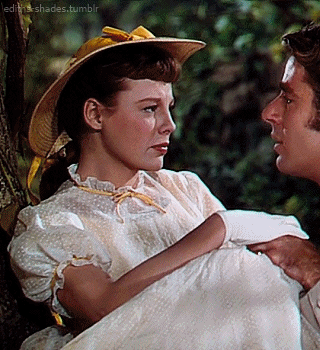
#little women#louisa may alcott#little women 1949#june allyson#janet leigh#elizabeth taylor#margaret o'brien#mary astor#peter lawford#leon ames#rossano brazzi#lucile watson#c. aubrey smith#elizabeth patterson#mervyn leroy#harry davenport#richard stapley#connie gilchrist#ellen corby#andrew solt#sarah y. mason#victor heerman#old hollywood#period drama#period dramas#costume drama
5 notes
·
View notes
Text
S5 of Dexter having a wonderfully tragic thematic throughline of Dex recognizing his tendencies and reflecting on his Origins in Lumen. Then allotting her the grace he subconsciously wanted from Harry, being hesitant as hell to really let her in on the gorey details knowing full well how much of a pussy bitch Harry was. Doing all the heavy lifting to unburden her from her trauma and vengeful spirit and parting amicably, all the while, too self loathing to where he cannot actualize the possibility that he may have the capacity to unburden himself as well. Despite his corny ass self mythologizing, the mf kinda sits in a limbo after s4 whereas he emerges with burgeoning humanity but still vehemently dehumanizes himself like in all seasons past, believing himself to be wholly incapable of that sort of change on a fundamental level.
All for season 6 to turn him into a fucking Reddit Atheist
#and give me my third allotted black man in a show set in fucking Santa Barbra county just to kill him post haste.#season 6 is funny as hell but my lord my goat was never one for religion I get it but he also dgaf#when he was talking with the Blind Hatian witch doctor the mf wasn’t debating him on the basis of Vodun#he was just being a snarky bitch as usual trying to get him to confess to the poison he used lmao#i kinda like season 5 but my god I kinda wish it wasn’t an over the top Andrew Tate sex trafficking ring#but like something still involving sex trafficking but more intimate if that makes sense#it should’ve had more scenes where he’s fucked by Rita’s death and more scenes with his damn kids#Astor and Cody should’ve been allowed to exist as characters seeing in realtime how fucked their stepdad is#esp now that he’s not shielded by their infinitely loving now deceased mother#from there they could have a ultimatum where they choose their Grandparents instead of Dex with Dex losing another chunk of himself and Rita#in the form of those two#dexter morgan#dexter tv series#they should’ve let ghost Harry be a stringent representation of the code rather than Dex’s ‘humanity#I just think Dex kinda resenting him in season 2 should’ve carried over more in later seasons
1 note
·
View note
Text

0 notes
Text
In The Gloomy Depths [Chapter 5: Ruby]

Series summary: Five years ago, jewel mining tycoon Daemon Targaryen made a promise in order to win your hand in marriage. Now he has broken it and forced you into a voyage across the Atlantic, betraying you in increasingly horrifying ways and using your son as leverage to ensure your cooperation. You have no friends and no allies, except a destitute viola player you can’t seem to get away from…
Series warnings: Language, sexual content (18+ readers only), parenthood, dolphins, death and peril, violence (including domestic violence), drinking, smoking, freezing temperatures, murder, if you don’t like Titanic you won’t like this fic!!! 😉
Word count: 5.5k
💜 All my writing can be found HERE! 💜
Tagging: @nightvyre @mrs-starkgaryen @gemini-mama @ecstaticactus @chattylurker, more in comments 🥰
💎 Let me know if you’d like to be added to the taglist 💎
Scarlet dusk spills over the pine planks of the deck like rising water. Sweet little Madeleine Astor invites you to attend dinner with her party—perhaps there is gossip that you and Daemon have had some sort of a row—but you have other plans. As the rest of the first-class passengers descend the Grand Staircase to the dining room on D-Deck, you make your way eastward towards the stern. You pass shipbuilder Thomas Andrews, who is ambling along with a group of chuckling, pipe-puffing gentlemen including J. Bruce Ismay and Benjamin Guggenheim. Mr. Andrews is mentioning the iceberg warnings that the captain has received from nearby vessels today; the other men are agreeing that Captain Smith is right to not be concerned. On a night as calm and cloudless as this one, surely an iceberg would be spotted by the lookouts with more than enough time to steer the ship to safety.
Aegon is waiting by the steel railing of the stern, stolen black coat, face glowing in fading daylight the color of sunstone, a crystal mined in Oregon. His scuffed brown leather portfolio and a folded easel are tucked under one arm; in his fist is clutched the handle of a small wooden box, which must contain his painting supplies.
“So,” he says, smiling when he sees you’ve accepted his offer, this final kindness before you are torn away from each other when Titanic docks in New York Harbor. “Where should we set up our studio? It can’t be in my cabin. One of my roommates is currently fornicating with a Russian girl. She seems nice. I hope she isn’t burdened with his bastard child.”
“You don’t think we should join them?”
He laughs. “Maybe I’m not ready to share you.”
“You’re not living up to your reputation, prodigal son. I had heard you were an irredeemable miscreant.” Then you turn to leave, and Aegon follows you.
You stop first at the Café Parisien on B-Deck, which is mostly deserted; it’s very cold outside, approaching freezing temperatures as the sun sinks below the bloodied horizon, and the heaters don’t work especially well in the restaurant. You purchase several different sandwiches and a chocolate croissant. No cash exchanges hands, which is good because you don’t ever have any; the stewards there recognize you and will add the charge to your illustrious husband’s bill, to be paid before passengers disembark on either April 16th or 17th, depending on how quickly Titanic arrives at her destination.
Daemon and Rhaenyra will be in the First-Class Dining Saloon for the next several hours, and thereafter will almost certainly steal away into her rooms to commit their incestuous adultery. Rush is eternally prowling nearby in case Daemon finds himself in need of anything: a drink, a gun, a troublesome wife shoved over a railing. Per her nightly tradition, Dagmar has taken Draco to the Verandah Café, which in addition to being a more casual eatery has become a sort of playroom for first-class children. And so in your staterooms, only Fern is present, finishing up some dusting before she journeys down to C-Deck to enjoy dinner in the Maids and Valets Saloon. From above the fireplace, the taxidermied tiger head watches you with eerily still gemstone eyes, a dispassionate witness to your treason.
“Hello, ma’am,” Fern says when you enter. “Can I make you a cup of tea before I go?” Then she sees Aegon walk in behind you with all his equipment, and she blinks, bewildered. “Good evening, sir. Did we meet on the Boat Deck this morning…?”
“We did,” Aegon replies a bit sheepishly. Fern looks at you, seeking an explanation.
“I need a favor,” you tell her.
“Of course, ma’am. Anything.” But Fern’s large dark eyes shift skittishly between you and Aegon.
You give her the paper bag heavy with treats from Café Parisien. “I’ve brought you dinner. I wasn’t sure what kind of sandwich you’d prefer, so there’s ham and Gruyère, tomato and chèvre, and pâté and cornichon. Eat whichever you like, or all three, it doesn’t matter. Oh, and there’s a chocolate croissant as well, nice and flakey and shining with butter. It’s absolutely massive.”
“That’s very kind, ma’am,” Fern says. She’s touched, but she’s still puzzled.
“Fern, I’m asking you to stay here in the sitting room. It doesn’t matter what you do, but don’t fall asleep, and for God’s sake don’t leave to go outside, not even for a moment.”
“Alright,” she agrees cautiously.
“I don’t think they’ll be back for a few hours, but if somebody does walk through that door—Daemon, Dagmar, anyone—all I need you to do is offer to make them tea, as you would on any other night. And offer loudly.” This will alert you to the intruder and give you more than enough time to get Aegon out onto the private deck, from which he can access the hallways of B-Deck and the Grand Staircase.
Fern understands. She nods, studying Aegon thoughtfully. “Yes ma’am.”
“And I didn’t have any visitors.” Your voice is grave; it is not only your reputation at risk. It’s your life.
Fern feigns shock. “Of course not. I haven’t seen a soul.”
You touch a palm to her shoulder, fleeting and gentle. “Thank you, Fern.”
“It’s no trouble at all, ma’am,” she says, and then goes to the small circular table and begins to unwrap one of the sandwiches from Café Parisien.
As soon as you and Aegon are inside your bedroom, you push Daemon’s writing desk in front of the door, precious extra seconds bought in the unlikely event that your husband returns and Fern can’t slow him down. Aegon immediately begins setting up: placing his easel, clipping a piece of fresh linen-like parchment from his portfolio to it, and removing a palette, brushes, and tiny tin tubes of oil paint from his wooden box. He turns off all of the lamps except one, then glances at the unlit white candles on the dresser and the nightstand. Before he can say anything, you take his aluminum lighter from your handbag and light the wicks.
“Can I do anything else to help?” you ask.
“Yeah.” Aegon nods to your spacious walk-in closet, where the door is hanging ajar. It’s nearly as large as his entire third-class cabin. He shrugs off his black wool coat; beneath it he is wearing only a white button-up shirt and dark green corduroy trousers. “Get dressed. Put on something you feel like you look especially good in.”
You gaze blankly at the closet, then turn back to him. “I don’t think I look good in anything.”
“Well now I’m going to make you watch.” He smirks at you, mischievous, teasing, then drops to his knees to squirt beads of paint onto his stained palette: golden like the lamplight, a rich dark brown like the walnut wood of the bedposts.
“How would you possibly accomplish that?”
“You have a mirror.” He points to it with a paintbrush, the oval-shaped pool of silver standing upright by the bed.
You gape at it, mortified. “No, I couldn’t possibly stare at myself the whole time.”
“Sure you could.” Aegon goes to the mirror and adjusts it until it is filled with your reflection. “Not too bad, right?”
“I suppose,” you murmur, but you have already fled to the closet. As Aegon swirls colors together on his palette, searching for the perfect shades, you sift through your collection of jewel-toned fabrics: lace, cotton, velvet, wool. You think again of the dusk light that turned the decks and waves to rubies, and your eyes catch on a red silk robe: purchased only a month ago, never worn yet, no memories of Daemon or anybody else, a new age like sunset or dawn. You take off your green gown and remove the emeralds from your ears, then don the crimson-colored robe and return to the bedroom to meet Aegon, silk flowing behind you like a riptide, the rustling of your legs beneath the fabric.
Aegon is scrabbling around by the foot of the bed, smoothing out any bumps in the Turkish rug, straightening the white ruffled bed skirt that hangs down to the floor. He peers up at you and freezes, his fretful fingers going still.
You ask tentavively: “Is this okay?”
He chuckles. “Okay is one word for it. Come over here.”
You go to Aegon and he takes your hands, both of them, and draws you down onto the floor where he is. You sit with your legs bent and tucked to the right, as if you’re a mermaid, your tail the color of blood instead of cool rippling depths. Aegon arranges the hem of your robe—he wants your bare feet showing, the silk rumpled in some spots and smooth in others—then retreats and stands back to study you, chewing the corner of his full bottom lip, his hands on his waist.
“Can I take your hair down?”
“Sure,” you say, but when he touches you—even a graze, even a whisper—you have to stop yourself from startling a bit, from reaching out to grab his wrist and keep him close.
“I can paint from memory,” Aegon tells you as he works, perhaps filling the quiet to soothe your nerves. “But it always turns out better if I have the person in front of me.”
“I’ll try to stay still.”
“You can move around if you have to,” he assures you. “I’d rather have you comfortable. I know you’re not a statue.”
“Right.” You smile. “I’m a rock.”
Aegon laughs and places your left hand on the bedpost as if you are clinging to it. “The best rock. Now let’s see you glimmer.” He goes to the mirror and repositions it one final time, angling it downwards slightly so you are in the center of the glass oval. From behind you on the dresser, flickering dots of candlelight glow like stars. You instinctively avert your eyes from your reflection, but Aegon is insistent. Gingerly, he turns your head back towards the mirror before striding over to his easel.
You do not want to watch yourself, so you watch Aegon instead, his doppelganger reversed in the glass. He’s mixing paint on his palette, repeatedly glancing at your robe to make sure he’s made the correct shade of red. He’s absentmindedly tucking a lock of his hair behind his ear. And you cannot stop staring at his hands: the way he holds a paintbrush, the bumps of his knuckles. He is not a man who has ever pillaged or bruised but only created pinpoints of light that gleam through the darkness, music and art and laughter, the gems of human existence. He is far from home, just like you are. His bones are the bars of a prison; you have married into the same one, created new life with it, melded your bloodlines together like forged metal.
Now Aegon is back, his reflection kneeling behind yours, and he begins to reach for your waist before he stops himself. “Is it alright if I…?”
“Of course. However you want me.”
The Aegon that lives in the silver sheen of the mirror settles his hands lightly just below your ribcage. He turns you just barely towards the mirror, only an inch away from where you were before, but he is precise, he is careful. This is the last image he’ll ever capture of you.
The warmth of him against you, his weight, his wonder as he gazes at your reflection with eyes like deep water; your breath catches, and at first he fears he has crossed a line and removes his hands. But your fingers are—slowly, like a suggestion that someone could so easily pretend not to have noticed—pulling up the hem of your silk robe, to just above your ankles, to your calves, to your bent knees. Aegon’s right hand covers yours, and then—as your eyes lock in the mirror—skates up the inside of your thighs as you part them, displacing the vivid red of your robe, revealing yourself in the glass, and so you can see it as he touches you, not like he owns or commands or uses you but like he is here to chisel you free from the perpetual darkness of the mine you’ve been trapped in for millennia.
You gasp in desperate, disbelieving relief, shaking all over, and you move to kiss him; but Aegon catches your face in his other hand and turns you back to the mirror. “No,” he whispers. “Watch.” And then he presses his lips to the apple of your cheek and lingers there for a moment, tasting you, breathing you in like you’re water filling the lungs of a drowning man.
“Aegon…”
“I want you to see how beautiful you are. I want you to see what I’ve been dying to do to you.”
His right hand is still between your legs, his fingers circling, a whirlpool that drags you down like an anchor until you hit the seafloor, an ocean not of pressure and cold but bright, yearning warmth, golden lamplight and flickering candles. You reach back to touch Aegon’s face—the stubble of his short beard, the sand-colored strands of his hair—but still he keeps your gaze fixed on your reflection. Now you are unashamed in a way you haven’t been since before your wedding night five years ago, just about the same time Aegon was leaving home. The proof is indelible, inking itself into your memory like a painter’s signature: you are desired, you are loved.
“Thank you,” you moan, so low it’s almost inaudible. You’re close. You’re very, very close. “Oh my God, Aegon, thank you…”
“Shh.” He kisses the side of your face, his eyes on the mirror, transfixed. “Show me.”
It’s a beam of sunlight refracted and scattered by a ruby; it’s a scalding torrent of blood that crashes through a web of arteries all the way to the heart. And when—still shuddering, still fighting for air—you pull away from Aegon’s grasp, he lets you go without any resistance.
You roll onto the floor and drag him on top of you by his shirt, struggling with trembling fingers to untangle the tie of your robe until Aegon realizes what you’re trying to do and helps you. He opens the blood-red silk and tastes the salt blooming on your belly, your breasts, your throat where your pulse is thudding drunk and maroon in your carotid. It’s better than cider or champagne or beer or nicotine; he is not a poison but a cure. He is unbuttoning his shirt and his trousers, hurried famished need. He is inside of you, and he is kissing you deeply, your palms on his flushed face, your hips moving with his. You steal a glimpse of the silver-moonlight mirror, and there you both are: lost and far from home, shipwrecked on the same island, castaways and wave crests and mirages. In the end, you know you have not disappointed him. His lungs are breathless and his eyes wet, his muscles just as spent and useless as yours. Neither of you are lost anymore. You have found each other here in the gloomy depths.
Almost immediately, Aegon forces himself off of you and crawls towards his easel, at last staggering to his feet. He grabs his palette and a brush and begins working with frenetic strokes, his damp hair falling in his face, his brow knit with concentration. You don’t have to ask what he’s doing. He’s trying to paint you before the memory begins to fade. He works in thin layers, just enough to cover the white of the parchment. His visions are soft and fragile like dreams, things that can be blown away and forgotten. From where you’re still lying on the floor, you gaze up at Aegon as he paints.
Is it possible that I’m in love with him? Is it possible that after this voyage I’ll never see him again?
You have no sense of how much time has passed when he finally looks over at you and says: “I think it’s done.”
You stand and wander across the bedroom, your red robe still open and hanging loosely from you like flayed skin. On the paper you find two faces instead of one, you in a golden haze of ecstasy no one else can see the cause of, Aegon whispering as your fingertips reach back for him.
He has written in black in the bottom right corner of the painting: Petra and Picasso.
~~~~~~~~~~
Aegon doesn’t want to move it yet. The oil paint needs hours to dry, and he’s worried that if he takes it outside while it’s still wet, the wind screaming down from the Arctic might be cold enough to make the paint freeze and chip away, and the momentary lust-red magic he’s captured will be gone. So with the new painting still clipped to it, you hide Aegon’s folded easel, the leather portfolio, and the wooden box of supplies under your bed, concealed by the white ruffled bed skirt. You both take turns cleaning up in the bathroom—someone always listening for the noise of an unwelcome interloper—and Aegon shimmies back into his clothes while you change into a blue dress, velvet for warmth, pale like ice.
“Where can we go?” you ask Aegon as you put on a coat, heavy white wool. I don’t want to say goodbye to you yet.
He must feel the same way. He pushes Daemon’s writing desk back to its original place, unblocking the door. Then Aegon offers his hand and you take it.
You walk together into the sitting room. Fern looks up from where she’s perched on the sofa and sewing closed a rip in the sleeve of one of Dagmar’s charcoal-colored dresses, her eye wide.
“Thank you, Fern,” you say, calm and drowsy. “That will be all for tonight.”
“Yes ma’am.”
“How can I repay you?” You don’t have your own money, your own land; even the jewels in your collection belong to Daemon. You’d give them all up if they could buy your freedom. You’d let them sink into the dark cold North Atlantic Ocean, emeralds and rubies and sapphires. Randomly, you think of Daemon’s gemstone-studded dagger, the hilt glinting with gold.
Fern replies: “Never send me away to live with people who don’t bring me chocolate croissants.”
You dash to the sofa and hug her; Fern is stunned but accepts your embrace, warily patting your back as if the bones beneath might be porcelain or glass. Then you clasp Aegon’s hand again and vanish with him into the hallway.
Most of the men are still at dinner or have moved to the First-Class Smoking Room, the women are still gossiping and sipping their champagne, and so you and Aegon slip through the heated corridors like sharks in warm currents. He leads you towards the stern, to the section of the ship reserved for his chosen people, then down to F-Deck and the Third-Class Dining Saloon. They are just beginning to move the tables out of the way for dancing. You find a quiet corner of the room and take off your coats, then Aegon disappears for a moment and returns with a tray: two plates full of corned beef, cabbage, carrots, and potatoes, two bowls of plum pudding, two cups of tea, a dark bitter pint of Guinness for you. You can feel your face light up when you see Irish food.
“You’re lucky you weren’t down here for breakfast,” Aegon tells you. “We had fried tripe and onions.”
“Oh, awful,” you say, laughing. You take a bite of corned beef and close your eyes, thinking of Saint Patrick’s Day with your family each year, always a cold wet day in March, green hills and grey mist. When you open your eyes, Aegon is smiling.
“A little taste of Ireland.” Now he is wistful. Across the room, the musicians Aegon sometimes plays with have climbed on top of a table and are performing My Wild Irish Rose as couples whirl around the floor. “I’ll miss it. I love the music and the people. Perhaps one in particular.”
“What are you going to do when you get home?”
“I’m going to tell Aemond he has to teach me how to be a duke,” Aegon says casually as he eats. “I can’t really give it up, unfortunately. The title belongs to the Crown, not my family. It can be taken away any time the king decides he wants to. And he’s a strict one, George V. He’s humorless, he’s harsh. If I refuse my inheritance, I can’t just pass it along to Aemond, not unless the king agrees. But the way I am…my failings, my lack of restraint…it makes my bloodline look like bad stock, doesn’t it? Especially with all that eugenics bullshit floating around. I don’t want my mother and siblings to lose everything because of me. My mother has spent her entire life miserable, I figure she should have something to show for it.”
The Hightower branch of the family are phantoms to you. You know them only from newspaper articles and erratic gossip and sneering remarks muttered by your husband. You take a swig of your Guinness, and for the first time in as long as you can remember you don’t feel like you want to have another. You don’t want to take the jagged edges off this moment, hidden below deck with Aegon for what is almost certainly the last time. You don’t want to forget anything about him. “What’s Aemond like?”
“Superior to me in every way,” Aegon says. “Disciplined. Clever. Very tall.”
“I myself favor short, delinquent artists. Those tall clever dragons are nothing but trouble.”
He snickers, shaking his head. “I’m not a real artist.”
“Sure you are. You’re Picasso.”
He’s watching you with murky blue eyes, dazed and marveling. “What are you going to do when you’re back in Ireland?”
It’s a fantasy, a folktale. I’ll never see Ireland again. “I’m going to help take care of my father. He’s…he’s not well, and he hasn’t been for a long time. His memory is failing. I want to make his last years as painless as possible. I want to spent time with my mother again, I want to go on walks and sit in the garden and read books and paint our ugly little pictures. We used to play this game where we’d each paint an animal and then have the other guess what it is. It once took her twelve tries before she realized my grey blob was supposed to be a basking shark. I saw one washed up on the shore when I was little.”
Aegon is smiling. “I could teach you how to paint.”
“Yes,” you say softly, knowing it will never happen.
“You could teach me what it’s like to have nice parents.”
“They’d adore that. They always wanted more children.” You are distracted, gazing into your Guinness, flecks of foam like constellations in a night sky. “I want to make sure Draco grows up to be a good man. I want him to be kind and gentle.” You look to Aegon, the thought suddenly leaping into your mind like a cat onto a windowsill. “Like you.”
Aegon’s eyebrows shoot up. “Like me? No, Petra. You don’t want that. I was a demon.”
“And yet you turned out fine in the end.”
“I turned out weak,” he says, abruptly severe. He drags his fingers through his disheveled hair, staring forlornly at the white wall behind you. “I wanted to help you but I can’t. I followed you from Galway to Cork, to the first-class decks, to your staterooms, and now…now when we dock in New York you’re going to get dragged off to wherever Daemon wants you to be and…and there’s just nothing I can do about it.”
“You’ve helped me,” you insist. “But now you’re too far away.”
Aegon comes over to your side of the table and drapes an arm across the back of your chair, and you lean into him, and together you watch the couples dancing to cheerful Irish music. Below your feet the engines are humming, and outside the waves are crashing against the hull of the ship, and up on B-Deck Daemon is probably crawling like a spider into Rhaenyra’s bed, and Laenor is consorting with his new Parisien companions, and Dagmar is reading some Scandinavian story to Draco before he falls asleep, and husbands are dulling their worries with brandy and cigars, and wives are distracting themselves with gossip about other women’s lives.
You don’t want to leave, not even as the passengers here in the Third-Class Dining Saloon begin to clear out and those left are so drunk they can hardly keep themselves upright, stumbling into tables and chairs and howling uproariously. Aegon doesn’t want to leave either. Now his arms have circled around your waist, and he’s nuzzling at your throat and the curve of your jaw, and you’re trying not to notice the weight of your black opal engagement ring on your left hand so you can forget the life you’ll have to go back to tomorrow.
I want him again, you think hazily. Where can we go? Where on earth can we go?
There is a sudden jolt, a deafening grinding sound, a tremor that shakes through the steel latticework of the ship. The few remaining dancers shout and cling to their partners. Pints of beer are knocked from tables and spill across the floor. Plates clatter and lightweight wooden chairs slide away.
“What the fuck was that?” a drunk man slurs, but then he and his friends begin to laugh about it, pounding on each other’s backs. You turn to Aegon. He’s not laughing. His eyes are large and darting around.
“Aegon, the ship is fine, right?”
“Yeah,” he says quickly, but he’s standing and passing you your white wool coat. “Come on. Let’s go up to a higher deck to see what’s happened.”
You picture the lifeboats that you have strolled past so many times, not nearly enough space for all the passengers, only the lucky half, the richest half. “The ship can’t sink, can it? That’s what everyone’s been telling me since we boarded, and I didn’t believe them because of course any ship can sink, but…Aegon…”
“It’s probably just a problem with one of the boilers or a propeller or something,” he says as he pulls on his black coat, stolen just like the way he’s stolen you tonight. But he doesn’t walk to the hallway and up the nearest staircase; he damn near sprints, dragging you along with him.
Outside the night sky is black and full of stars, bitterly cold, no wind. You emerge near the bow of the ship, and third-class passengers are kicking around chunks of ice as if they are playing Gaelic football. Aegon spins around, searching for the source of the ice.
“Ehi, amico! Did you see it?” an Italian man calls to Aegon. Aegon trots over to join him. You look down at the pine planks under your shoes. Is the ship listing towards the starboard side, or is that your imagination?
“No, what happened?” Aegon is asking the Italian. You can hear voices from the other decks, less alarmed than curious, people rattled awake, stewards helping to retrieve items that have rolled away.
“Iceberg, a huge one! We just went right past it! Pieces broke off and fell everywhere. We don’t have nothing like this in Napoli!”
“An iceberg?” Aegon echoes, stunned. He goes to the railing and leans over to squint out into the blackness. “Did we hit it?”
“We bumped it a little, I think,” the Italian says, unconcerned. Then he returns to the game, kicking a block of ice when it glides over to him.
“Look,” you say to Aegon when he returns to you, pointing skyward. Up in the crow’s nest, you can just barely hear the lookouts shouting back and forth. You cannot decipher their words, but they sound agitated. They sound afraid.
“Hit an iceberg,” Aegon murmurs, trying to make sense of it. “But that’s not serious, right? No one’s running for the lifeboats, no one’s talking about leaks or anything—”
“Aegon, does the ship seem like it’s listing to you?”
He peers down at the deck, shifts his weight from foot to foot. He doesn’t have to answer. When he looks up at you again, his blue eyes are panic-stricken.
“I have to find the shipbuilder Mr. Andrews,” you say. “He’ll have investigated, he’ll know how bad the damage is.”
“I’m going with you.”
I don’t know where my jailers are: Daemon, Dagmar, Rush, Rhaenyra. “You shouldn’t be in my section of the ship.”
“If something really is wrong, they’ll be the first people to know,” Aegon says. That’s cruel, but it’s true. First-class lives are worth more than his.
You fly up the steps to A-Deck, where on the Promenade Deck men in black suits are chuckling about the ruckus as they puff on pipes and cigars, and women in beaded evening gowns are pressing their soft pampered hands to their chests as they recall the shock of the earthquake-like shudder that rattled Titanic. Stewards are flitting around fetching tea and pillows. No one is talking about lifeboats or sinking, which you take to be a good sign; but you can’t find Thomas Andrews.
When you and Aegon have at last circled back to the bow of the ship, you spot a group of men walking swiftly into the glass box of the bridge. They are speaking in low voices, their hands moving in frenetic gestures. Thomas Andrews is there, you are relieved to see. J. Bruce Ismay and Captain Smith are among those with him.
“Mr. Andrews!” you cry, and he stops and turns. He is carrying an armful of rolled-up engineering drawings.
“Lady Targaryen,” he says numbly, then seems to lurch out of a trance and hurries to you, standing closer than would be considered proper. In his state, he has not noticed Aegon, lurking a few paces behind you and listening intently. “Your family, Daemon and the others…you must wake them.”
“I saw the ice on the deck by the bow, did the ship—?”
“We hit it,” Mr. Andrews tells you, hushed so others will not hear and become hysterical. “An iceberg. Scraped along the side, caused the iron plates to buckle below the waterline. I’ve seen the forward cargo holds and they’re…” He blinks, astonished, as if this is a nightmare he might still wake up from.
This can’t be happening. This ship was supposed to be unsinkable. That’s what everybody told me, that I was insane to fear the journey. “But…but what about the watertight bulkheads?” He had spoken so confidently of them at dinner just a few nights ago.
“I didn’t built them high enough, and seawater is spilling over the tops. The first five compartments are already flooded, too many for Titanic to stay afloat.”
“The ship will sink?” you whisper, terrified. Aegon moves closer, a palm on the small of your back.
“Yes,” Mr. Andrews says.
“When?”
“Perhaps an hour or two.”
“An hour?!”
“Carpathia has answered our distress call, but she’s four hours away.”
You stare at him. “And the ocean…it’s freezing.” Anyone left adrift in it will die.
“Get to a lifeboat, Lady Targaryen,” Mr. Andrews says. “Don’t wait. I’m doing everything I can.” He rejoins the other men and goes with them into the bridge. Behind the glass walls, J. Bruce Ismay begins to yell something at Captain Smith.
“Hey, hey, listen,” Aegon is telling you, but you can’t seem to focus on him. His voice sounds like it is coming from very far away, another coast, another lifetime.
“There aren’t enough lifeboats,” you say, flat with shock.
“I know. I remember what you told Fern when I saw you up on the Boat Deck.”
You race for the steps that lead down to B-Deck where your staterooms are. “I have to find Draco—”
“Wait, wait, listen to me.” Aegon’s hand reaches out and grasps yours, not imprisoning you but imploring you, begging you to hear him. “Half the people on this ship are going to die.”
“Yes,” you agree, the horror of it quivering in your voice. In the frigid night air your words turn to fog like the mist that clings to the Cliffs of Moher, like ghosts captured in the corners of photographs.
“And most of the bodies will never be recovered, and there will be no way of knowing for sure what happened to them, and the crime scene will be at the bottom of the ocean.”
Crime scene? Crime scene??? “Aegon, what are you talking about?”
“Don’t you get it? Petra, this is your way out. I’ll help you. We’ll do this together.”
Draco. I have to get Draco into a lifeboat. “Aegon, I don’t understand, do what?”
His eyes are gleaming; the grin that splits across his face reveals teeth like pearls. “We’re going to kill your husband.”
#aegon x reader#aegon targaryen ii#aegon ii#aegon targaryen x reader#aegon ii targaryen#aegon x y/n#aegon x you#aegon ii targaryen x reader#aegon ii x you#aegon ii x reader#aegon targaryen#aegon ii fanfic#aegon ii x y/n
172 notes
·
View notes